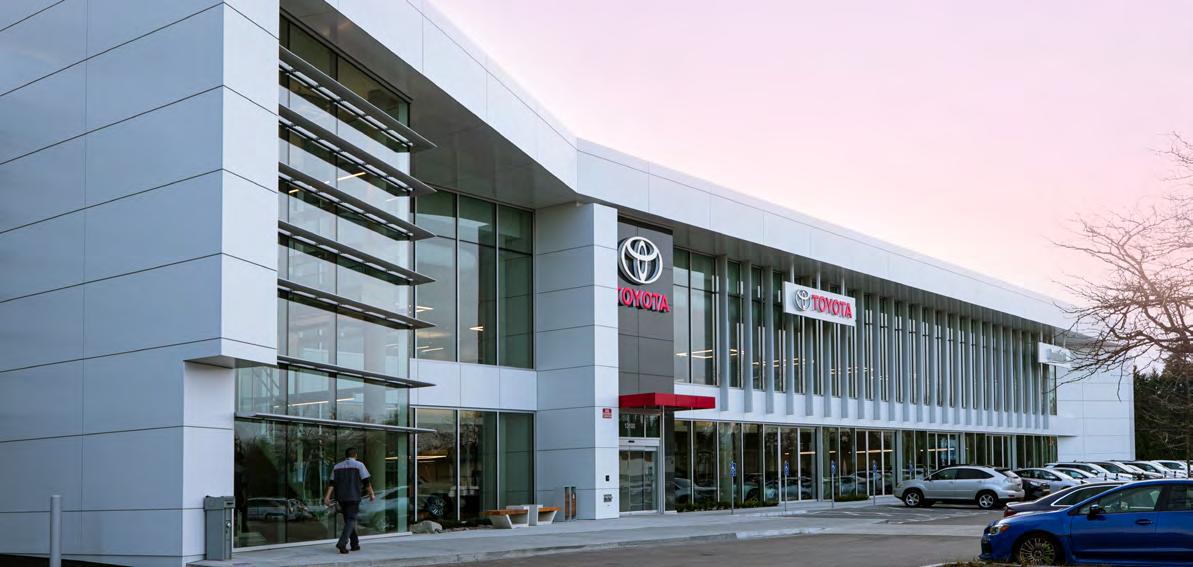
3 minute read
Labour Relations Changes by KSW Lawyers
Labour Relations Code Changes
BY KSW LAWYERS
When the NDP formed government in 2018, it altered employment laws in support of unions. This reflected the pendulum swing of labour reform in BC upon change of government. Significant changes were made to employment standards, human rights and the Workers Compensation Act, where the NDP plans to implement the findings of four reports, most of which could make employers’ lives more complicated.
The NDP also struck a three-person panel to review the Labour Relations Code (“Code”) as it did in 1992. On May 30, 2019, Bill 30, the Labour Relations Code Amendment Act, was passed into law.
Space does not permit a thorough review of all the changes to the Code. This article focuses on those which make it easier for a union to certify a non-union car dealership or expand its certification in a partially-unionized one.
Unfair labour practices, employer free speech and remedial certification These changes were to be expected. Changes were made to the Code to enhance union organizing rights. BC Federation of Labour president Laird Cronk summed it up: “British Columbia remains a low-wage province, and precarious work is on the rise. The best antidote to economic inequality is greater union density.”
Three key changes make it harder for employers to fend off a union organizing drive. This increased risk of unionization applies to both non-union operations and the non-union departments of a unionized car dealer where the union seeks to organize the remaining employees.
First, the new Code restricts employer free speech. In 2002 the Liberals expanded employer free speech in section 8 of the Code to allow employers to discuss almost any topic, including unions, without running afoul of section 6 (which prohibits an employer from interfering with a union). Under Bill 30, section 8 protection now only applies to “facts or opinions reasonably held with respect to the employer’s business.” If it feels like “déjà vu,” it’s because this was the language of the Code under the NDP from 1992 to 2002.
Secondly, the time period for the certification vote has been reduced from 10 to five business days from the time of the application. This is an advantage to unions because they control the timing of filing (perhaps filing at 3:59 pm on a Friday so the employer won’t find out until Monday). Employers who don’t anticipate the application have little time to prepare their strategy and avoid unfair labour practices (UFLP).
Thirdly, the power of the Labour Relations Board (LRB) to order automatic certification without a vote to remedy a UFLP has been broadened to whenever the LRB “believes it is just and equitable in order to remedy the consequences of the prohibited act.” We don’t yet have any decisions on this provision, which leaves some uncertainty for employers who might cross the line and commit an UFLP.
Summary These changes impact dealers faced with a certification application. Therefore, employers are wise to consider the very real possibility their operations may be organized and take steps now to prepare.
“After this article was prepared the LRB issued its first decision interpreting the new remedial certification provisions. The Board ordered remedial certification where two union organizers were terminated just as the union organizing drive started. The LRB gave a very broad interpretation to these new provisions: see Salade ETCETERA Inc. 2020 BCLRB 34. A more detailed summary will be posted on the KSW blog.”
ICBC Changes
Continued from previous page
of accreditation. Under the new programs, shops will be ranked by performance relative to their peers and the ranking will affect how the shop is promoted to customers by ICBC.
How will performance be assessed Performance will be monitored based on a set of Key Performance Indicators (KPIs) that measure cost efficiency of repairs, the time to complete the repairs and return the vehicle to the customer (cycle time), compliance with ICBC’s policies and procedures (quality assurance) and customer satisfaction. Compliance with ICBC policies and procedures accounts for approximately 50 per cent of performance assessment, customer satisfaction and cycle time each account for 20 per cent, and the remaining 10 percent of performance assessment is based on factors that directly affect repair costs.
How to prepare for the changes Dealerships offering collision and glass repair services should: • Review program requirements and identify gaps that need to be addressed. • Have processes in place to ensure compliance with ICBC’s policies and procedures, including processes to educate staff on changes. • Monitor customer satisfaction ratings and proactively identify areas for improvement.
MNP can help you increase your profitability and mitigate risks. To learn how, contact Susan Mowbray at susan.mowbray@mnp.ca or 604.685.8408.



